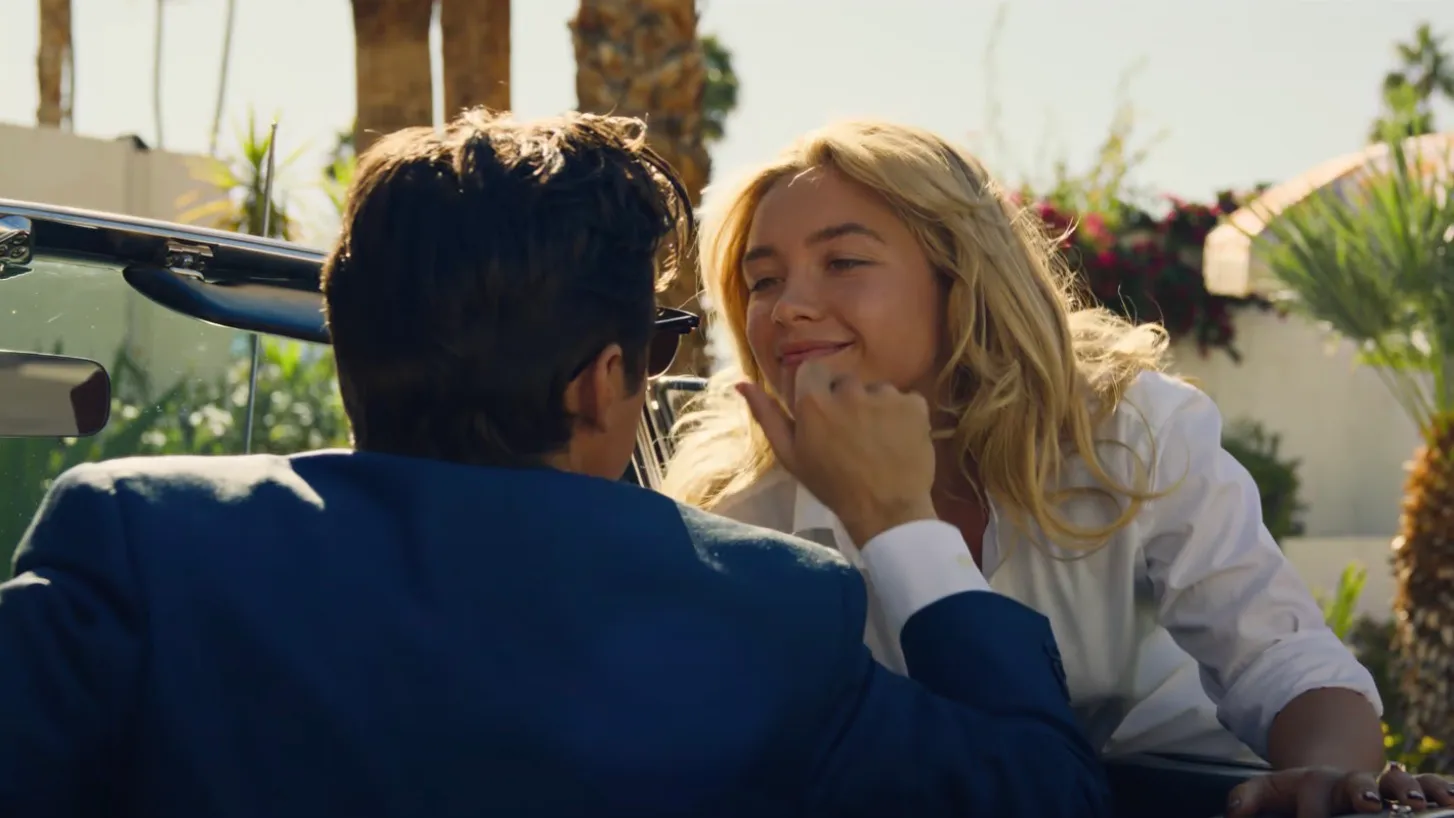
Film Review: Don’t Worry Darling
Film Reviews
Don’t Worry Darling
Director: Olivia Wilde
New Line Cinema, Vertigo Entertainment
In Theaters: 09.23
Olivia Wilde’s long-awaited psychological thriller Don’t Worry Darling has arrived just in time for spooky season. Everyone and their mother has heard a thing or two about the behind-the-scenes drama of this film (if you haven’t, where have you been?), which has generated hype like no other, especially due to its stars: the present-day queen of Hollywood, Florence Pugh (Midsommar, Little Women) and popstar heartthrob, Harry Styles (Dunkirk). Where Don’t Worry Darling succeeds, it soars—however, where it fails, it does so glaringly.
The film tells the story of a happily married 1950s couple, Alice (Pugh) and Jack Chambers (Styles), as well as their friendly, silly cul-de-sac neighbors: Bunny (Olivia Wilde), Bill (Nick Kroll), Violet (Sydney Chandler) and a handful of other friendly faces. A colorful, blissful atmosphere greets the audience: friends laughing, drinks dissipating and lovers kissing. In the continuing story, we meet Frank (Chris Pine)—the leader of a mysterious project, known as “Victory”—and his wife, Shelley (Gemma Chan). In time, Alice begins to notice strange things happening around her, beginning with the peculiar behavior of her friend Margaret (Kiki Layne) and snowballing into madness.
The film’s cinematographer (Matthew Libatique) deserves all the awards and then some. Its rich colors, attention to detail and twirling camera captures the feeling of entrapment. Coupled with a dynamic score/soundtrack, these intricacies alone are reason enough to watch Don’t Worry Darling in theaters rather than waiting for it to hit streaming services. Wilde had a clear vision for this film, and in many ways it succeeds—it thrives off its polished, choreographed and captivating image and environment. However, most, if not all, of the film’s downfalls lie within the script.
The overarching, feminist theme often feels a little too on the nose to be taken seriously, and it doesn’t serve its purpose as well as it could have, resulting in a half-baked, mediocre and predictable script. Trust me, though there were moments that made my stomach turn, the delivery was often bland, commercial and unoriginal. Wilde attempts to send a message through a dystopian/culty world, which has been done time and time again in films and television such as Black Mirror, Get Out and Stepford Wives.
Whenever Don’t Worry Darling takes a step forward, it then takes three steps back, not to mention its ludicrous amount of plotholes. Often, directors like Jordan Peele intentionally leave plotholes open to the audience’s interpretation, which is forgivable. Don’t Worry Darling’s lack of cohesion simply feels lazy, not to mention that the middle half felt redundant, as we watch Alice speculate her surroundings over and over again with little plot progression.
Florence Pugh carried this film on her back miles and miles through the glitchy, matrix desert. Pugh is able to keep you completely engrossed and take you along for the ride, encouraging you to feel equally trapped and manipulated as her character is. You can read her every thought through her eyes and infamous Pugh frown. Additionally, Styles’ performance was better than my expectations: not shining as brightly as Pugh, but subtly complementing her performance with pronounced chemistry.
From a critical scope, yes, this film falls short and almost fails in more ways than not. However, it’s still enjoyable, easily digestible and eerie enough to give you a couple chills. After seeing Wilde’s directorial debut and teen comedy Booksmart, to say my expectations were high for this film would be an understatement, but I can assure you it’s nevertheless worth the watch, and I will undoubtedly return for a second viewing. I encourage you to enjoy it for what it is and not look too deeply for answers or perfection. –Birdy Francis
Read more film reviews starring Florence Pugh:
Film Review: Little Women
Film Review: Midsommar